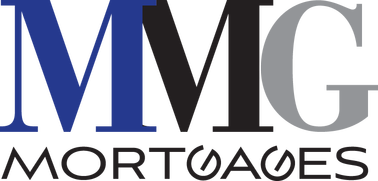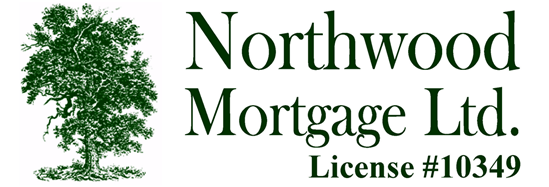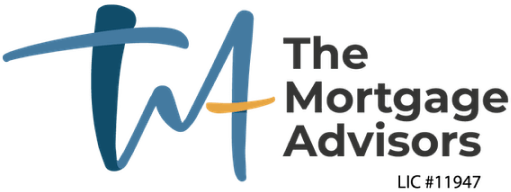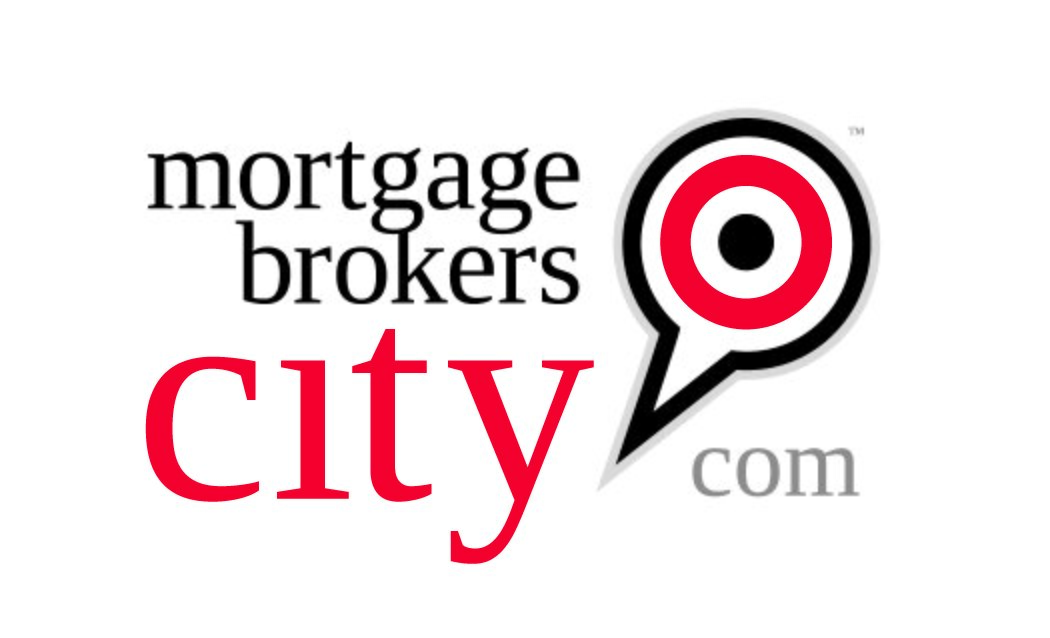Find the Best Surrey Mortgage Rates
Compare Surrey mortgage rates from top lenders & find your best mortgage rate.
Today's Best Mortgage Rates in Surrey, British Columbia
Evaluate Surrey’s best mortgage rates in one place. You can compare the most current mortgage rates and monthly payments from 175+ banks and lenders across British Columbia.
Rates are based on an average mortgage of $500,000 and subject to change based on filter criteria.
| Lender
|
Insured
|
Insurable
|
Uninsured
|
|---|---|---|---|
|
MMG Mortgages
|
3.99%
$2,627.39 / month
|
4.19%
$2,681.85 / month
|
4.14%
$2,668.19 / month
|
|
Mortio Financial Corp
|
3.99%
$2,627.39 / month
|
4.24%
$2,695.56 / month
|
4.14%
$2,668.19 / month
|
|
Northwood Mortgage Ltd.
|
4.14%
$2,668.19 / month
|
4.24%
$2,695.56 / month
|
4.24%
$2,695.56 / month
|
|
Innovation Federal Credit Union
|
4.39%
$2,736.87 / month
|
4.39%
$2,736.87 / month
|
4.39%
$2,736.87 / month
|
|
True North Mortgage
|
2.99%
$2,363.66 / month
|
2.99%
$2,363.66 / month
|
2.99%
$2,363.66 / month
|
|
The Mortgage Advisors
|
3.87%
$2,594.98 / month
|
3.87%
$2,594.98 / month
|
3.87%
$2,594.98 / month
|
|
Nesto
|
3.91%
$2,605.76 / month
|
3.91%
$2,605.76 / month
|
3.91%
$2,605.76 / month
|
|
Hypotheca
|
3.94%
$2,613.86 / month
|
3.94%
$2,613.86 / month
|
3.94%
$2,613.86 / month
|
|
MortgagestoGo
|
3.94%
$2,613.86 / month
|
3.94%
$2,613.86 / month
|
3.94%
$2,613.86 / month
|
|
One Link Mortgage & Financial
|
3.95%
$2,616.57 / month
|
3.95%
$2,616.57 / month
|
3.95%
$2,616.57 / month
|
|
Mainstreet Credit Union
|
3.99%
$2,627.39 / month
|
3.99%
$2,627.39 / month
|
3.99%
$2,627.39 / month
|
|
The Police Credit Union
|
3.99%
$2,627.39 / month
|
3.99%
$2,627.39 / month
|
3.99%
$2,627.39 / month
|
|
Monster Mortgage
|
3.99%
$2,627.39 / month
|
3.99%
$2,627.39 / month
|
3.99%
$2,627.39 / month
|
|
Northern Birch Credit Union
|
3.99%
$2,627.39 / month
|
3.99%
$2,627.39 / month
|
3.99%
$2,627.39 / month
|
|
City Wide Financial Corp
|
3.99%
$2,627.39 / month
|
3.99%
$2,627.39 / month
|
3.99%
$2,627.39 / month
|
|
Sudbury Credit Union
|
3.99%
$2,627.39 / month
|
3.99%
$2,627.39 / month
|
3.99%
$2,627.39 / month
|
|
East Coast Mortgage Brokers
|
4%
$2,630.10 / month
|
4%
$2,630.10 / month
|
4%
$2,630.10 / month
|
|
Mortgage Brokers City Inc
|
4.04%
$2,640.95 / month
|
4.04%
$2,640.95 / month
|
4.04%
$2,640.95 / month
|
|
Prospera Credit Union
|
4.04%
$2,640.95 / month
|
4.04%
$2,640.95 / month
|
4.04%
$2,640.95 / month
|
|
First Credit Union
|
4.29%
$2,709.29 / month
|
4.29%
$2,709.29 / month
|
4.29%
$2,709.29 / month
|
|
First National Financial
|
4.34%
$2,723.07 / month
|
4.34%
$2,723.07 / month
|
4.34%
$2,723.07 / month
|
Today's Best Mortgage Rates in Surrey
Evaluate Surrey's best mortgage rates in one place. RATESDOTCAs Rate Matrix lets you compare pricing for all key mortgage types and terms.
Rates are based on an average mortgage of $500,000 and subject to change based on filter criteria.
Updated 18:37 on Jul 14, 2025| Placeholder |
Insured
The rates in this column apply to borrowers who have purchased mortgage default insurance.
This is required when you purchase a home with less than a 20% down payment.
The home must be owner-occupied and the amortization must be 25 years or less.
|
80% LTV
The rates in this column apply to mortgage amounts between 65.01% and 80% of the property value. The home must be owner-occupied and have an amortization of 25 years or less. You must have purchased it for less than $1 million. These rates are not available on refinances. Refinances require "Uninsured" rates.
|
65% LTV
The rates in this column apply to mortgage amounts that are 65% of the property value or less. The home must be owner-occupied and have an amortization of 25 years or less. You must have purchased it for less than $1 million. These rates are not available on refinances. Refinances require "Uninsured" rates.
|
Uninsured
The rates in this column apply to purchases over $1 million, refinances and amortizations over 25 years. More info on the differences between insured and uninsured rates.
|
Bank Rate
Bank Rate is the mortgage interest rate posted by the big banks in Canada.
|
|---|---|---|---|---|---|
| 1-year fixed rate | 4.69% | 4.19% | 4.19% | 5.59% |
5.49%
|
| 2-years fixed rate | 4.04% | 3.89% | 3.89% | 4.54% |
4.79%
|
| 3-years fixed rate | 3.99% | 4.00% | 4.00% | 4.24% |
4.29%
|
| 4-years fixed rate | 3.99% | 4.14% | 4.14% | 4.44% |
4.39%
|
| 5-years fixed rate | 3.91% | 3.89% | 3.89% | 3.91% |
4.09%
|
| 7-years fixed rate | 5.04% | 4.24% | 4.24% | 5.19% |
5.00%
|
| 10-years fixed rate | 5.24% | 4.34% | 4.34% | 5.29% |
6.09%
|
| 3-years variable rate | 4.15% | 4.30% | 4.30% | 4.40% |
6.35%
|
| 5-years variable rate | 4.05% | 4.05% | 4.05% | 4.05% |
4.25%
|
| HELOC rate | N/A | N/A | N/A | N/A |
N/A
|
| Stress Test | 5.25% | 5.25% | 5.25% | 5.25% |
N/A
|
Surrey, BC’s housing market
Surrey, B.C., which is considered part of the Metro Vancouver area and lies in the Fraser Valley Regional District (FVRD). The town borders the United States and is a popular area for homebuyers looking for housing that is cheaper than Vancouver proper but still offers a combination of urban and community vibes. The city is growing, and some estimates say it could overtake Vancouver’s population by 2030.
According to the Fraser Valley Real Estate Board inventories have been in short supply but sales have increased due to the pause in Bank of Canada interest rate hikes. In April, the Board processed 1,554 sales on its MLS system, which is basically unchanged compared to March and a slight decrease of 5.1 per cent compared to April 2022.
The Board received 2,478 new listings in April 2023, which was lower by 3.2 per cent compared to March, and down by 31.6 per cent compared to last year. The month ended with a total active inventory of 4,632, a 2.2 per cent increase over March, and 14 per cent less than April 2022.
In B.C. home buyers can get rebates through the first-time home buyers' program, which reduces or eliminates the amount of property transfer tax you pay when you purchase your first home.
The federal government also offers a First-Time Home Buyer Incentive. The program offers 5 or 10% of the home’s purchase price to put toward a down payment then repaying the government either 5% or 10% of the property’s market value at the time of repayment.
Tips for first-time home buyers in Surrey, BC
- Evaluate your costs
Budgeting is crucial. If you can’t afford it, obviously you can’t buy it. So, take a close look at your income, expenses, potential for future income, if you are a new family; look at your future costs for school and child rearing.
Also, there’s more to purchasing a home than just the original price. You'll need to factor in things like closing costs, land transfer taxes, and ongoing costs like insurance, property taxes, utility bills, and maintenance. And with home ownership comes many other expenses such as buying new furniture, appliances and other yet-to-be discovered upgrades and finishings you will be responsible for.
Being very honest about your needs and wants versus your income level will help you understand how much you can pay for a new home.
- Seek pre-approval on your mortgage loan
Getting a pre-approval on your Surrey mortgage rate helps you assess what you can afford and what neighbourhood you can live in. It also provides peace of mind knowing that you can calculate costs ahead of time with the knowledge that your pre-approval rate will be held for a brief period of time.
- Think long-term
What you think you might need your house for today can change in the future. For example, in 2020 and 2021, people moved out of city centres to “avoid” the pandemic and find bigger homes that might be easier to work out of. As that situation abated, people are finding the commute more difficult as they return to office life.
Also, have honest discussions with your partner about growing (or not growing) your family. What type of house will make sense in the future compared to today’s needs? Do you want to be near parks, schools, community centres or does an urban lifestyle still make sense?
- Research homebuying incentives from the federal government
A great program from the federal government is the First-Time Home Buyer Incentive, a program that makes homeownership more affordable.
Under this incentive, the federal government will give you money for a down payment, anywhere between 5% or 10% of the home's purchase. You will still have to repay the incentive when you sell the house or after 25 years. You might also trigger a repayment if you and a co-owner split up and one wants to buy out the other.
Your household income must be no more than $120,000 to qualify for the new incentive. This includes any investments and rental income, not just your employment income. You will also need a minimum down payment, which must be less than 20% of the home's total cost. Lastly, you can only buy a home with valuations that are at most four times your qualifying income; you can't exceed this ratio.
In B.C., the provincial government also offers an incentive plan that reduces or eliminates the amount of property transfer tax you pay when you purchase your first home.
- Find a trustworthy team of professionals
Because this is your first home purchase, you’ll need to rely on a solid team of professionals who know the business well and can help you avoid pitfalls. Finding trusted real estate agents, lawyers, lenders, inspectors, and appraisers, for example, can all help you save money in the long run and avoid costly repairs or legal challenges down the road.
If you're searching for a mortgage broker or agent, apply for a quote with RATESDOTCA. We'll set you up in three minutes with the mortgage provider offering your lowest rate.
Frequently asked questions about mortgages in Surrey, BC
Have more questions about mortgages in Surrey, BC? We've got all your answers here:
How much can I save by comparing the current Surrey mortgage rates?
Using comparison shopping sites like RATESDOTCA can save you thousands of dollars on currently Surrey mortgage rates. By providing a few pieces of information around your housing needs, RATESDOTCA will supply you with the cheapest mortgage rates in Surrey from the top providers in the area. It’s simple, fast and free to use.
Why should I compare Surrey mortgage rates with RATESDOTCA?
RATESDOTCA provides you with the most current Surrey mortgage rates from the top providers in the province (and country). Financial institutions such as TD Bank, The Bank of Nova Scotia, RBC, Desjardins, Home Trust and many others are compared side-by-side making it easy for you to compare the cheapest rates around.
RATESDOTCA is always updating its data with the most current Surrey mortgage rates for you to be better informed and make the best decisions you can on what is likely your most expensive asset.
Are Surrey mortgage rates higher than other BC cities?
Overall, Surrey mortgage rates should be consistent with other rates in other cities in the province. Financial lending institutions will look at things like your income, credit and debt-to-income ratio.
There are times when rates can fluctuate in competitive markets. Lenders might make more drastic changes in their rates to attract business.
What’s the difference between variable and fixed rate mortgages?
Finding the right mortgage that suits your needs, your budget levels and tolerance for risk is no easy task. First time homebuyers in Surrey are faced with choosing between variable and fixed rate mortgages. There is no right choice as everyone has different needs and financial constraints. The decision should come with a realistic look at your current and future needs as well as discussions with your lender or broker about what suits you the best.
Variable Rate Mortgages:
Variable rate mortgages fluctuate based on a bank’s prime rate which is influenced by the Bank of Canada overnight rates (the rate that is used for banks to charge interest to one another).
In these cases, your regular scheduled payments remain the same but the amount you pay in interest can fluctuate. While interest rates were at historic lows, variable rate mortgage holders were paying less than their fixed-rate cousins. As rates have climbed, that scenario has changed.
If you have an adjustable-rate mortgage, your monthly payments on your mortgage go up if the prime rate increases. Monthly payments will go down if the prime rate decreases.
Fixed Rate Mortgages:
Fixed rate mortgages are, well, fixed. Your interest rate will stay the same for the duration of the mortgage term. In many cases the five-year fixed rate is the most popular among homebuyers but there are three and 10-year options as well. Unlike variable rate mortgages, you have greater peace of mind knowing what the fixed cost is for the term of your mortgage. The lack of fluctuating rates can help you budget more efficiently.




























